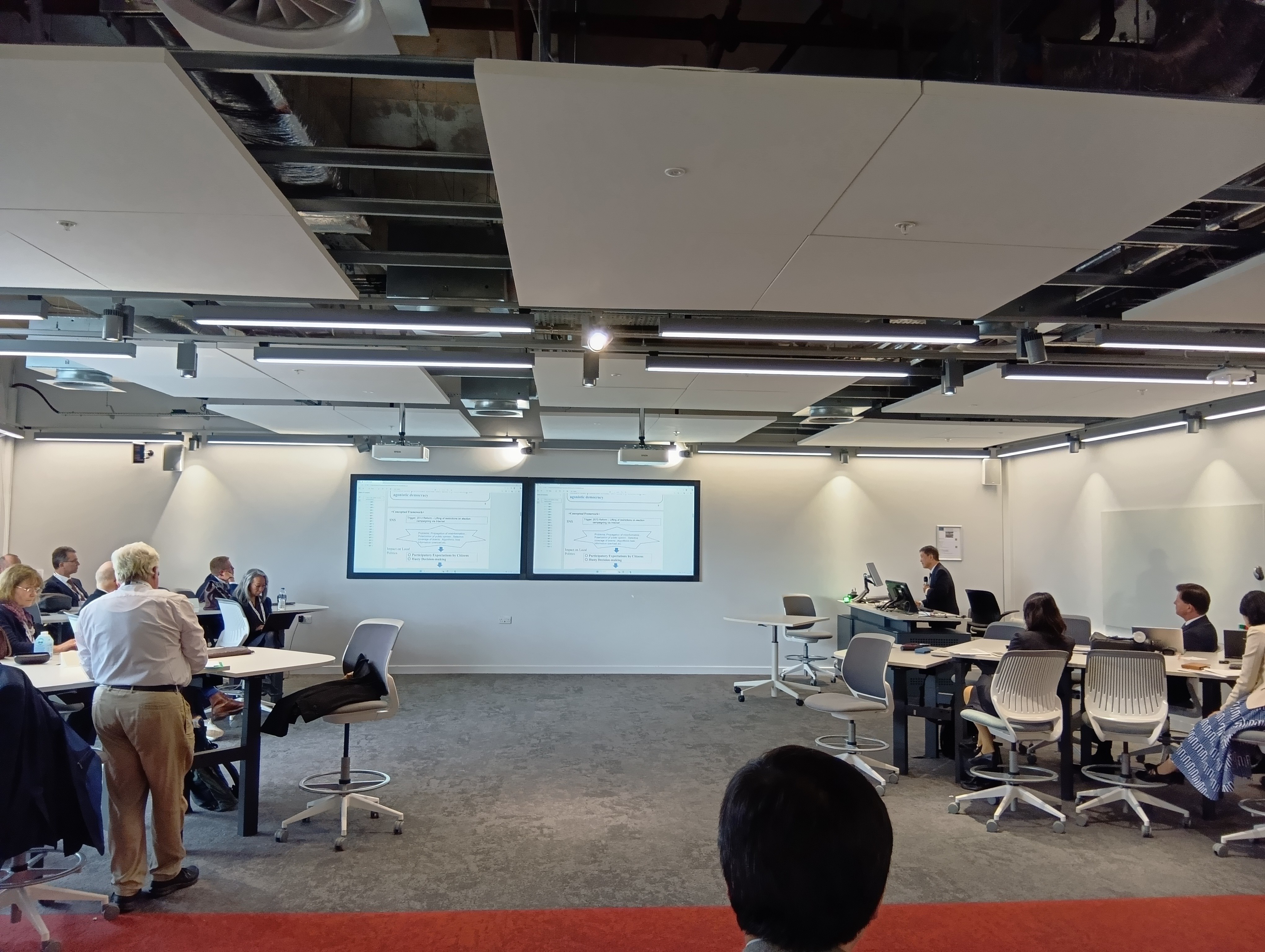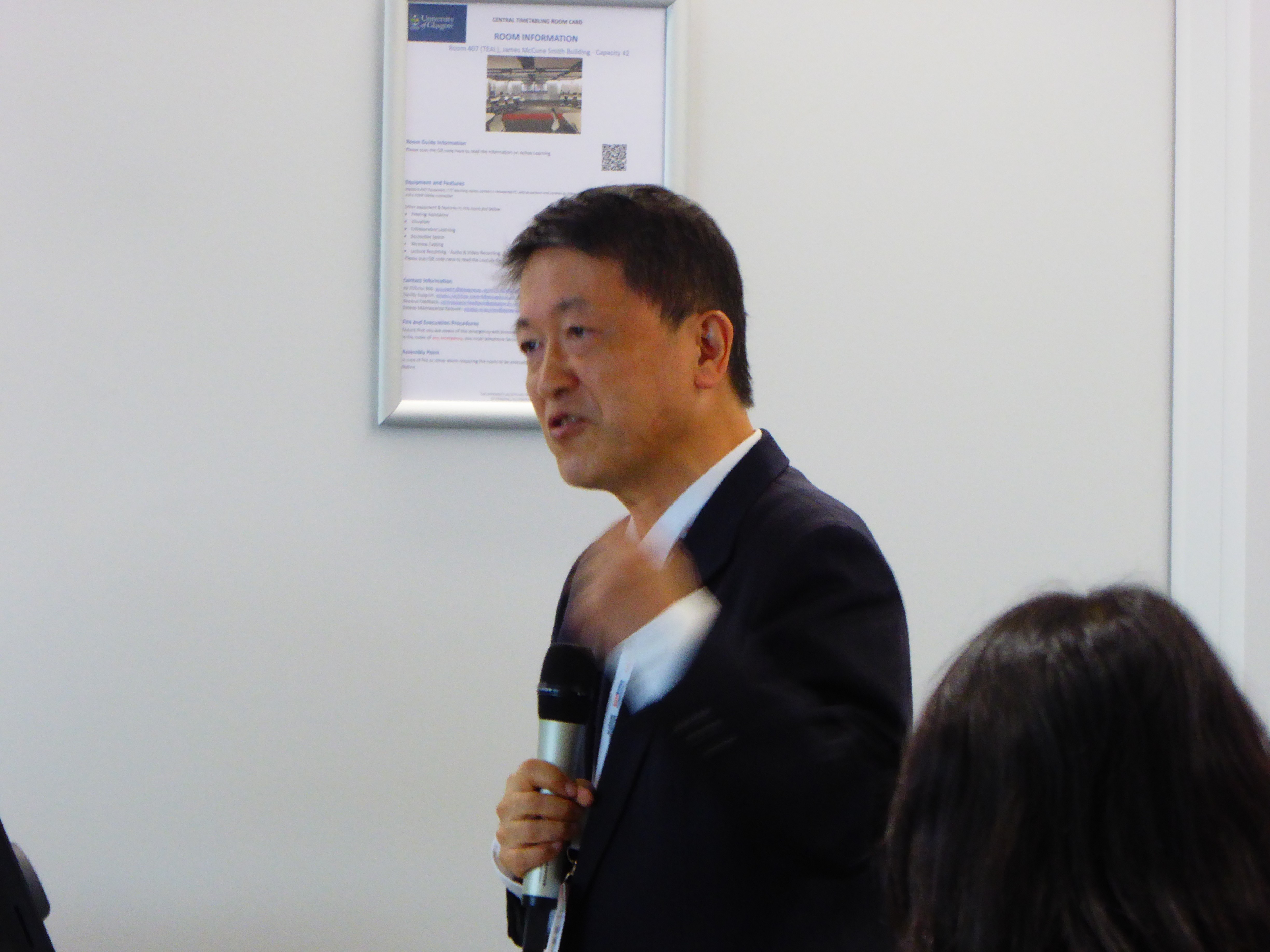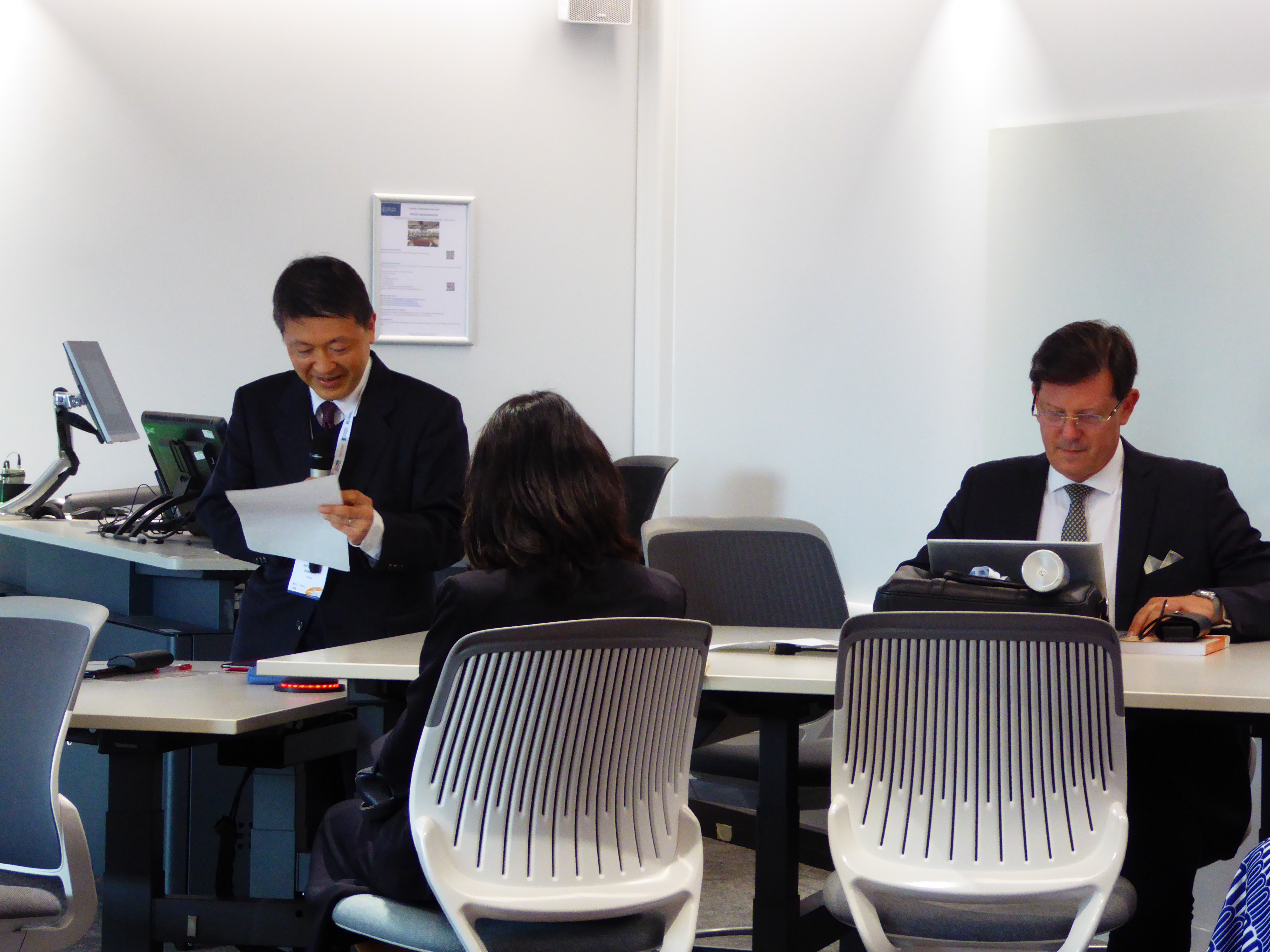[Graduate School of Global Governance] Prof. Kimura participated in the EGPA(European Group Public Administration) Conference 2025
Sep. 12, 2025



Pofessor Shunsuke Kimura participated in the EGPA(European Group Public Administration) Conference 2025 and served as co-chair of the Japan Europe Special Panel, moderating the session and presenting a report.
<Purpose of the Panel>
Although they have different political histories and trajectories of state-building, different administrative traditions and different reform trajectories, Japanese and European democracies are currently facing similar risks and threats of democratic backsliding. In Japan as in Europe, the sociopolitical context in which the democratic regime is embedded is rapidly changing, including changes in intergovernmental relations, civil society (such as changes in political behavior, relating in a way or another to demographic decline, worse in Japan but still happening also in many European countries), political activities by political parties, and the rapid progress of digitalization and big data powered by Artificial Intelligence, not to mention increasing risks of “turbulences” with the effects of climate change and increased risks of high-intensity armed conflicts. Our Japanese and European democracies are therefore put under new, or renewed pressures, to make and even conduct great “transitions”.
<Prof. Kimura's Report: “Crises in the system of dual representation -Social Media and Agonistic Democracy in the Dual-Representative System” >
After World War II, Japan established a strong mayoral dual representation system, allowing citizens to elect both assembly members and mayors directly, thereby enhancing mayoral political leadership. However, since the 2010s, significant changes have occurred:
(a) Theatrical political behavior: Chief elections are increasingly shaped by SNS, and a significant correlation has been identified between single-issue platforms and chief election outcomes. Separately, in large local governments such as Tokyo, situations have arisen where over fifty candidates run for office.
(b) Agonistic democracy: This includes the veto cases in which assembly decisions finally prevail, non-confidence cases (especially with unanimous votes against), and increased provisional decisions in smaller municipalities.
These trends, which are rooted in the weak issue-forming capabilities of municipal assemblies indicate a crisis and raise questions about the impact of SNS on dual representation. SNS brings about theatrical political behavior and promotes agonistic democracy, reflecting citizens’ desire for direct policy control. The analysis shows correlations between these changes and trends in EDGI (social media index) are partially supporting the hypothesis. In response, the presenter suggests that assemblies should guard against monolithic influences from SNS, each assembly member must engage in issue formulation to counteract theatrical democracy pressures, and citizens should commit to rational discourse for informed decision-making.


